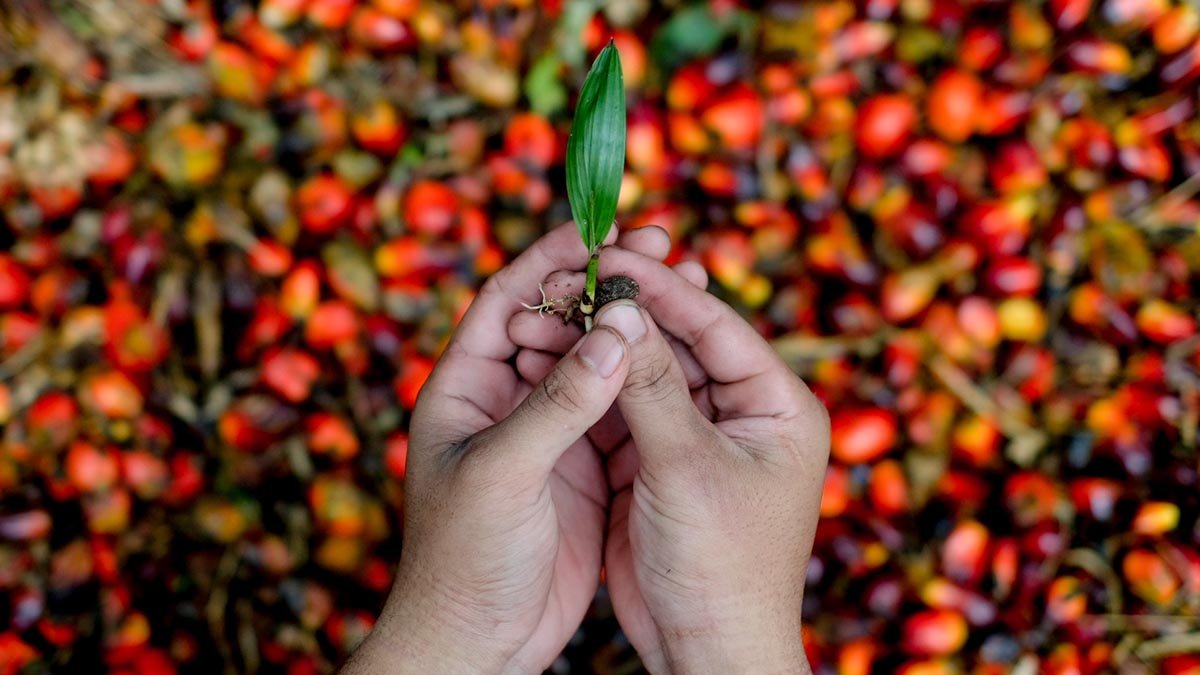PALMOILMAGAZINE, BALI – Researchers from SMART Research Institute Indonesia, led by Reni Sukawati, have introduced innovative solutions to mitigate the impact of climate change on palm oil cultivation. During her presentation, Sukawati highlighted the increasing challenges faced by the palm oil plantation sector due to changing climate patterns, particularly rising water deficits in several regions of Indonesia.
She explained that climate change has resulted in unpredictable rainfall patterns, with wetter rainy seasons and drier dry seasons. “In some regions of Indonesia, water deficits have reached 200 mm over the past 25 years. In Sumatra, the deficit ranges from 125 to 155 mm, while in South Kalimantan, it reaches 75 to 100 mm,” she stated during the third day of the International Conference on Oil Palm and Environment (ICOPE) Series 2025 at Bali Beach Convention, Bali, on Friday (14/02/2025).
Palm oil plants, which are highly sensitive to water stress, experience a significant drop in production. “Water deficits can reduce palm oil yields by up to 50%, potentially causing annual revenue losses of up to IDR 4.6 billion,” Sukawati added. To address this issue, SMART Research Institute has committed to developing innovative solutions to minimize such losses.
Also Read: Sinar Mas CEO Calls for Climate-Positive Agriculture at ICOPE 2025
Research Focus on Dry Regions
To tackle these challenges, Sukawati and her team have conducted intensive research in dry regions such as Muara Enim and Jambi. “We focus on analyzing the impact of water stress on plant physiology and metabolism. This research helps us develop protocols to identify factors contributing to production failures,” she explained.
The research team also utilizes hyperspectral imaging technology to monitor plant performance. “We measure various components, including sugar production, air circulation, and photosynthetic efficiency. This data allows us to characterize plant materials that are highly sensitive to water stress,” Sukawati added.
Since 2019, SMART Research Institute has implemented a screening procedure using a specialized water stress platform. “This platform accommodates 800 seedlings and is equipped with an automatic irrigation system and sensors that monitor soil and water conditions,” she stated.
Through this platform, researchers have tested 1,448 seedlings from various palm oil families. “We select plant materials that show a performance improvement of more than 10% compared to conventional varieties. So far, we have identified 14 potential families, two of which have been validated through field trials,” she elaborated.
Field Validation and Recommendations
Field trials were conducted in three locations—North Sumatra, South Kalimantan, and Central Kalimantan—each with different levels of water deficit. “The results show that water stress-resistant plant materials perform best in regions with high water deficits. However, these materials also remain productive in areas with lower water deficits,” Sukawati explained.
She emphasized that a combination of plant material selection, water management, and monitoring technology is crucial to improving palm oil’s resilience against climate change. “With this approach, we hope to help farmers optimize production while reducing environmental impacts,” she noted.
Going forward, SMART Research Institute plans to expand the implementation of this technology to more regions in Indonesia. “We will continue developing superior varieties that are more resistant to water stress and climate change,” Sukawati concluded.
With this innovation, Indonesia’s palm oil sector is expected to remain competitive and sustainable amid the growing challenges of climate change. (P2)
